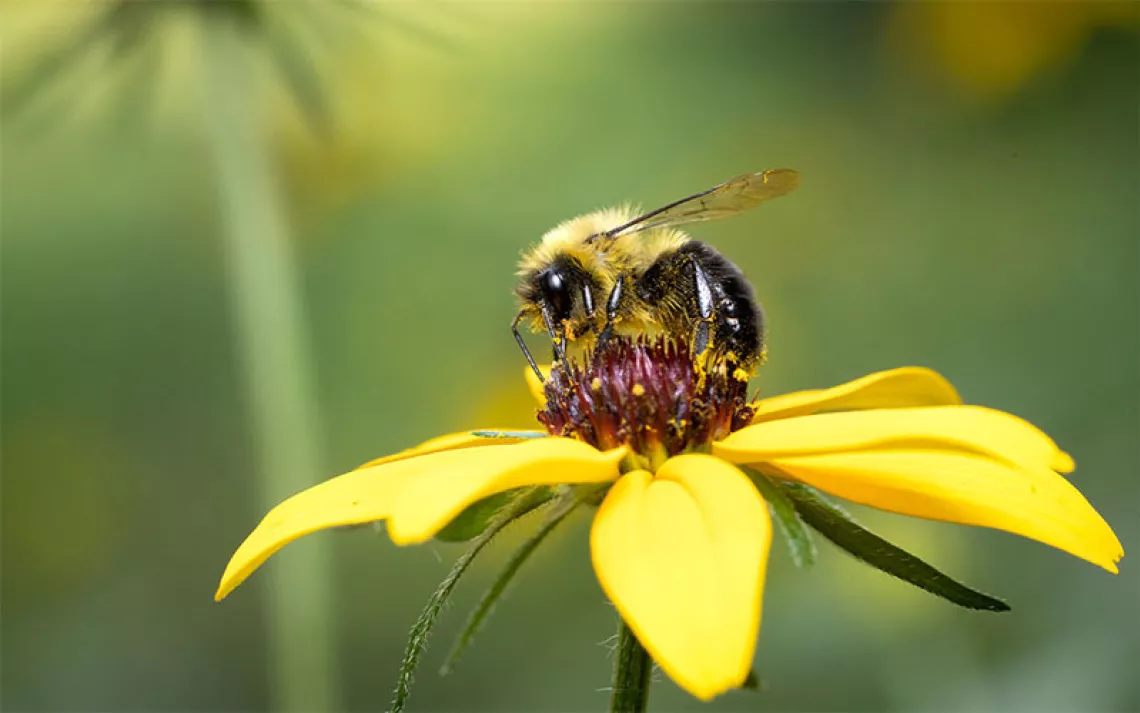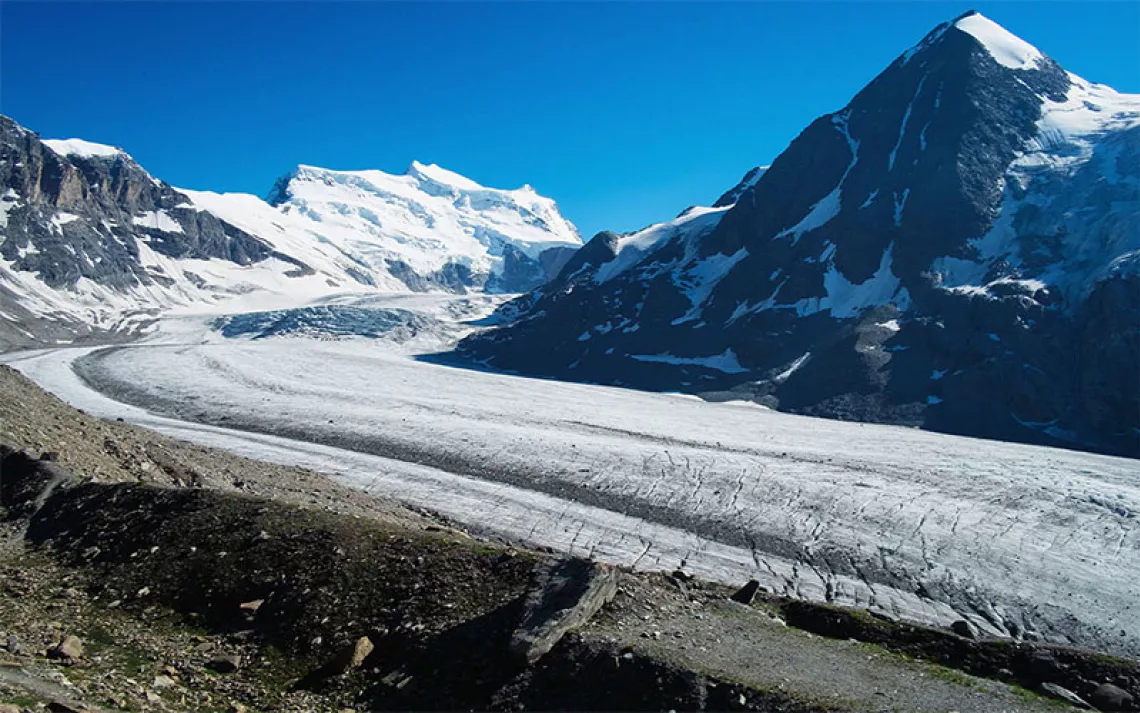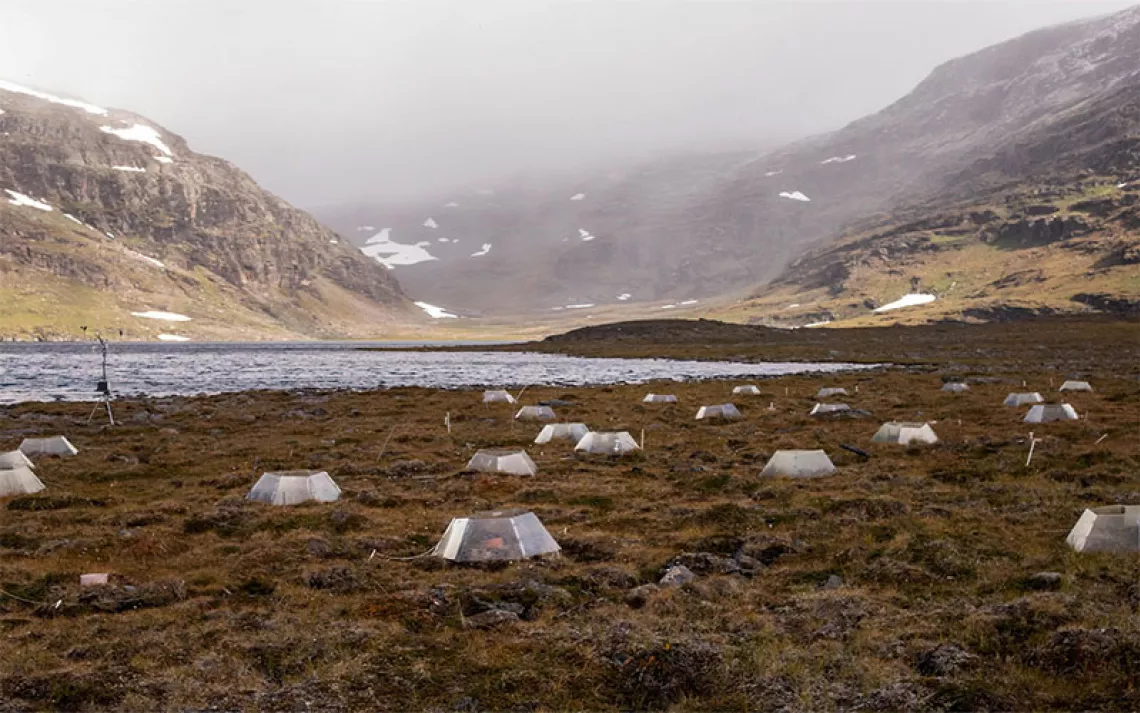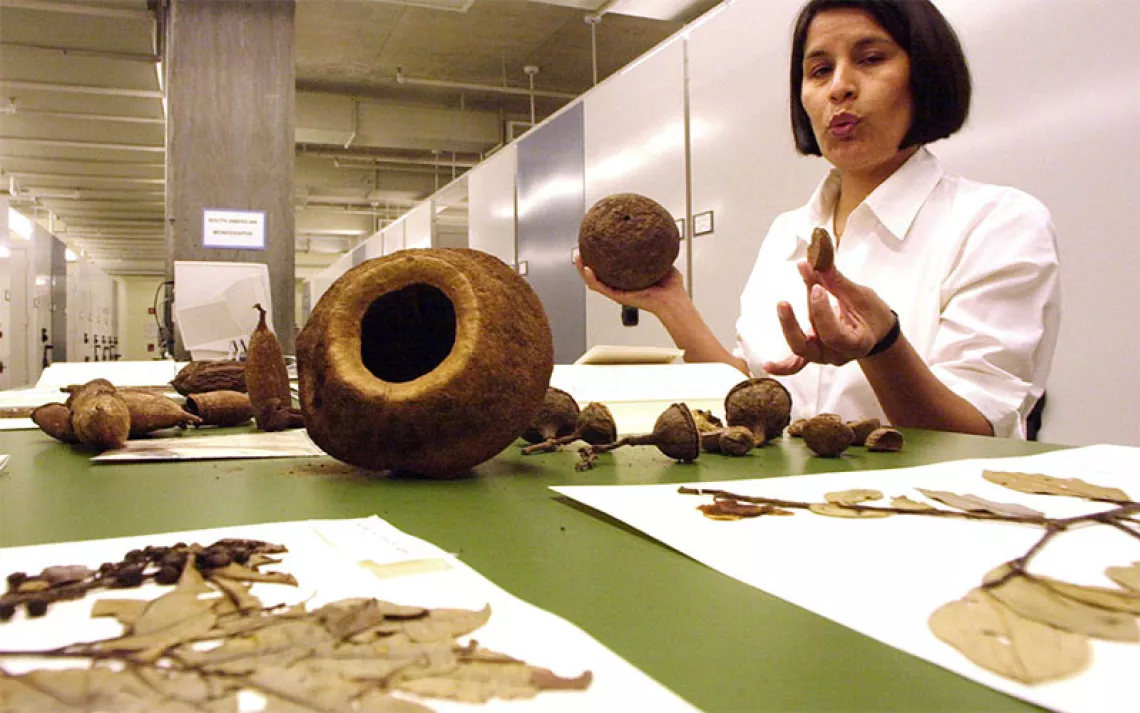Letter From a Bed in Cape Town
Conspiracy theories and pee etiquette in a South African drought

Self-portrait with graywater | Photos by Adam Welz
A month ago my doctor told me to get into bed and stay there. My sudden, eye-popping back pain was a herniated spinal disc, he said, brought on by months of my artlessly lugging 25-liter plastic containers full of graywater weighing 55 pounds apiece around the house to flush toilets. If I wanted to walk normally again without surgery, I should lie flat for—well, he couldn’t really say how long—until it got better.
My spine is another casualty of Cape Town’s now-famous drought. After three years of unusually low rainfall, life in many households now revolves around collecting and reusing water, because this city of some four-plus million people is on the verge of running out. If current projections hold, we’ll hit the melodramatically named Day Zero—when the taps will be dry across most of the metro—sometime in early May.
I’ve been through something like this before. A severe drought loomed over my teenage years in 1980s Pretoria. I remember gardens becoming brick-red dustbowls, tapwater turning the color of weak tea, sharing baths that were only two inches deep at the plug end with my brother and sister, and the rising feeling of dread as one cloudless, bright-blue day relentlessly followed another. We were saved by massive thunderstorms just as the city’s dams were about to dry up.
We’re told that Cape Town will become the first major city in modern times to be almost completely without running water, which is really quite special. This is appropriate: Capetonians—at least the mostly white, middle-and-upper-class types—are renowned for being smug about their city’s specialness. Until recently, visitors to Cape Town were regaled with self-satisfied pronouncements on its extraordinary natural beauty, great beaches, top restaurants, stunning winelands, investment-grade property, efficient local government, cute penguins, and so on, and on, and on.

Cape Town
Now our impending date with dehydration is puncturing the delicate bubble that so many of my wealthier city-mates coolly cruise around in, and new rules of behavior are being worked out. An acquaintance recently observed that a trip to a high-end restaurant ladies’ room created a dilemma: Should she flush after peeing and expose herself as an inconsiderate water-waster? Or was it OK not to flush and force other patrons to confront a pungent, amber blend of multiple strangers’ piss after they’d enjoyed sensual dinners of delicately seasoned fresh linefish garnished with organic micro-greens and accompanied by the Cape’s finest sauvignon blanc?
Like almost everything else in South Africa, discussions of the drought are threaded with under- and overtones of racism. Wealthier (mostly white) Capetonians complain that the poorer (mostly black) residents of the city’s sprawling, informal shanty settlements don’t pay for water and are therefore rampantly wasting it. (South Africa’s Constitution guarantees a right to water, so poor citizens get a small, free allocation.) My Facebook feed is filled with posts written by whites relaying stories from their black domestic workers about community standpipes running unattended 24/7 and illegal car wash businesses using stolen water in the shantytowns; very few whites ever venture into the informal neighborhoods, so the stories are all secondhand.
“The water crisis is not my fault. I pay my taxes, so the [post-apartheid, black] government should be providing us with water!” is a common refrain on white Facebook, the subtext of which is that the white supremacist, apartheid-era government would never have screwed up this badly. Poorer Capetonians lash back at residents of the “leafy suburbs” (code for wealthy white areas) by accurately pointing out that rich households, with their swimming pools, American-style lawns, and en-suite bathrooms use orders of magnitude more water per person and are therefore the cause of the crisis. Rumored orgies of flushing in the toilet stalls of upscale shopping malls are presented as “evidence” that rich whites waste water away from home, too.
If Capetonian denizens of Facebook are to be believed, the government is suppressing information about secret underground springs underneath the city that, if tapped, could save us from disaster (the springs are not secret, and their yield is too small to make a significant difference). Other Facebookers say that the water crisis is part of a government conspiracy to force us into accepting draconian controls on our water use, to knock one or other political party out of power, or to wipe out the middle class with onerous new taxes. Blurry videos of overflowing dams circulate wildly: “proof” that the drought isn’t real.
Many Capetonians believe they have a right to large volumes of cheap water, environmental constraints be damned. People ask why the government can’t “just” lay a pipe from Johannesburg, where there is water (and is also a thousand miles from here), tow icebergs from Antarctica (a bit farther away!), or deploy fantastical Israeli machines to make water from thin air for the masses. The merest mention of Israel then sparks further angry conspiracy posts linking the mayor’s political party to a Jewish takeover of our water supply, which in turn elicit nasty accusations of anti-Semitism, and then it all degenerates into a virtual punch-up over Palestine. Facebook and Twitter are pocked with frothy waste-pits of blame, ignorance and ecological illiteracy in which occasional good ideas and fragments of accurate information desperately try to keep from drowning. Drunk, naked conspiracy theories howl through the digital streets of this city almost unimpeded, propelled by rushing waves of panic.
It’s not just citizens flinging blame around. The city’s municipal government blames the national government for failing to build enough bulk water infrastructure, like dams and desalination plants (which, it’s true, it hasn’t) and the national government blames the municipal government for introducing water use restrictions too late (which is arguably also true). The provincial government blames national and municipal governments for incompetence, and they in turn accuse the province of meddling in matters beyond its constitutional mandate. The provincial premier (equivalent to a state governor in the United States) is in a Twitter tangle with the weather service, which, she says, failed to forecast the drought. Scientists weigh in by pointing out that climate change models predict decreasing rainfall around the Cape, and we should have been preparing for this long ago. Journalists who can’t tell a kiloliter from a megaliter or a wetland from an aquifer have shamelessly assumed hydrological expertise overnight.
This rampant blaming and the lack of credible information appear to have cultivated fatalism and magical thinking in a large percentage of the city’s population. In early December, Cape Town’s mayor announced that, despite the wide publicity around the crisis, 64 percent of residents were using more than the then-mandated allowance of 87 liters (23 gallons) of water per person per day. The accuracy of that percentage was contested because the City of Cape Town’s means of calculating it were not revealed, but serious observers agree that a large percentage of the city’s residents were not saving sufficient water. The allowance was reduced to 50 liters (13 gallons) per person per day on February 1, and the percentage of residents hitting the new target is unknown.
Few citizen-led, community-wide plans for Day Zero have materialized. Instead, many social media groups include large cohorts of people arranging prayers for rain, including the South African National Department of Water & Sanitation. (Our family’s version of praying for rain is leaving clothes out on the line when the weather app forecasts anything more than cloudy skies. It’s not very effective.) Watery versions of American-style “prosperity gospel” preachers are emerging in the form of businessmen peddling desalination systems, who invite us not to think of water as scarce but to “imagine a new paradigm of water abundance.”
Of course, if 64 percent percent of Capetonians are not saving sufficient water, that means 36 percent are. We’re not all nihilistic crazies, thank goodness. The hottest intel online is where to find water containers, small or large, which are as rare as hens’ teeth. Local entrepreneurs drive down from Johannesburg with trucks full of plastic jerrycans, pull up on street corners, advertise their locations on social media and sell out in a few hours. Hardware stores have three-month waiting lists for rain tanks that have tripled in price since a year ago; my Facebook feed is full of desperate homeowners looking for stores that actually have tanks in stock. (I imagine the owners of Joburg water tank factories splayed out contentedly among slowly collapsing piles of paper money, as rumbling convoys of trucks packed with product head down to the Cape.)
Our family has managed to cut our water consumption to below 50 liters per person per day for a few months now by using graywater to flush toilets, by using the washing machine rinse water to wash the next load and by only bathing the kids every three or four days (they don’t seem to mind). We haven’t watered the garden in a long time, and plants are dying, mostly the non-native species that we aren’t too fond of anyway. The strip of lawn out front is almost completely dead, which is fine, too. We might replace it with native daisies when (if?) it rains again.

The remains of the lawn
We have large, full rainwater collection tanks in our yard, which were installed by the previous owners of the house. They’re ugly and take up space, but the tanks should keep us going for a while if Day Zero comes to pass. If those run dry or the security situation gets out of control, we’re planning to head to Johannesburg; we’re developing an exit plan and have stashed an extra jerrycan of fuel for the car. Sarah, who grew up in the well-watered Chicago suburbs, now appreciates why I became anxious when our American friends blithely washed dishes under constantly running taps. I, in turn, value her more than ever before. She’s been hauling extra water and implementing water-saving strategies while I convalesce.
My back injury has forced a new appreciation of the labor- and life-saving miracle of civilization that is clean piped water. I’ve involuntarily gained deeper, embodied respect for the millions of women (because it is mostly women) across Africa who, every day, carry every drop of water they use from wells and rivers to their homes.
Some politicians are starting to say that the drought should inspire Capetonians to develop a “new relationship with water.” They’re right. If the climate change models are correct, the western parts of South Africa are set for overall drying in the coming years. In the long run, we’re going to have to do more with less water and probably pay a lot more for it, too.
But first we have to deal with Day Zero and push through to June or July, when the winter rains usually get going. If the taps run dry across most of the city, hundreds of thousands or millions of us will be lining up to fill containers with drinking water at 150-odd emergency water distribution points that’ll be set up at schools and sports fields. Some foresee conflict at the distribution points, desperate people roaming the streets in search of water, and the city descending into a deadly water war. (I say to Sarah that I’m secretly relieved that our water tanks aren’t visible from the street. “Do you think people are gonna break in here to get it?” she asks. “I don’t want to have to buy a gun.”)
Others think we’ll survive in one piece. In 1994, South Africans surprised the world and ourselves when, after decades of apartheid government and violent racial conflict, overwhelming numbers of us lined up peacefully and patiently to vote in our first democratic election and elevated Nelson Mandela to the presidency. If Capetonians can summon the spirit of '94—which is no sure thing—we might just be OK.
UPDATE: Thanks to radical water conservation efforts on the part of Cape Town residents, the city's taps aren't expected to run dry until July 9th, very close to the start of the rainy season. That's no excuse for Cape Town residents to get comfortable, though, writes Welz in this update.
 The Magazine of The Sierra Club
The Magazine of The Sierra Club



